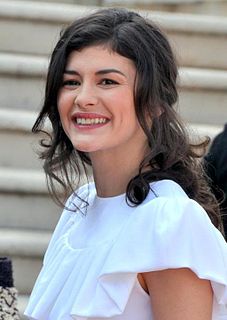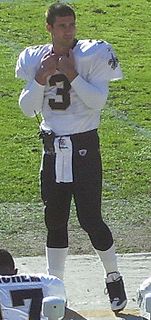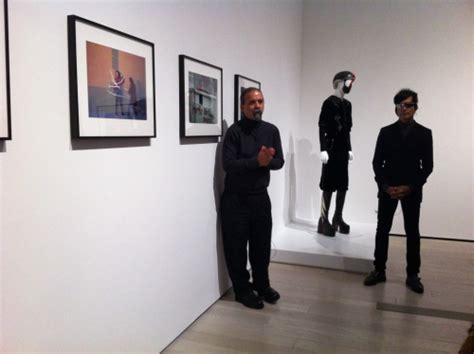A Quote by Audrey Tautou
I think that when you create something or at least try to create something, you slither between excitement and pleasure and you understand this huge emotional frustration. You did one feat, then you go back one.
Related Quotes
Karma is not something pessimistic. If you think of karma as something wrong, you are seeing karma only according to what happened in the past. You look at the past and karma becomes a monster. So you should also look at karma in the present and future. Then karma becomes something very wide and really alive. Through karma you can understand what your destiny is. Destiny itself has no solid form; it's something you can create. You can create your life. That is why we study karma.
There's nothing else exactly like it in any other art form, the orchestration of so many different elements. It's endlessly fascinating what can be done editorially. You can create meaning where there was none, you can create feeling where there was none, you can create narrative where there was none. Two frames can be the difference between something that works and something that doesn't. It's fascinating.
Nature is so huge. I mean, you can't even look one way! Everything is huge. That was my natural instinct, to create huge art, to create huge pieces. And to me, I still could create bigger works. The opportunity doesn't come along to do anything any bigger. So I've worked as big as I've had the opportunity to work, basically.
When I started, the scripts weren't as good, and you'd have to have a huge burst of energy to go, "Sheesh, how am I going to? This stuff's no good." So you'd have to improvise something or create something or try to work with the ware and try to figure out, how do you make this visually and orally acceptable, entertaining? Nowadays, the scripts are just so much better, that you don't have to feel that way. You feel like the script's coming to you, you can just relax. You don't have to drive the boat.
From somewhere, back in my youth, heard Prof say, 'Manuel, when faced with a problem you do not understand, do any part of it you do understand, then look at it again.' He had been teaching me something he himself did not understand very well—something in math—but had taught me something far more important, a basic principle.



































